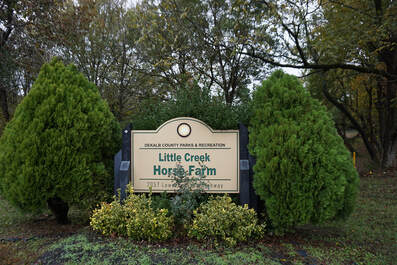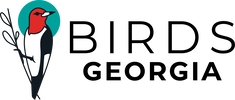HELP US build BIRD-FRIENDLY COMMUNITies
NOMINATE YOUR PARK OR GREENSPACE FOR A HABITAT RESTORATION FUND Grant PROJECT
 Little Creek Horse Farm, in DeKalb County, was the recipient of the 2019 Habitat Restoration Grant. Photo by Gabe Andrle.
Little Creek Horse Farm, in DeKalb County, was the recipient of the 2019 Habitat Restoration Grant. Photo by Gabe Andrle.
The Habitat Conservation Grant Program has been paused temporarily due to the pandemic. Please check back for future updates.
Throughout our state reside wildlife that are dependent on a healthy, native ecosystem, and of those most prominently recognized are birds. Once plentiful, resident and migratory birds have succumbed to population declines due to habitat loss and degradation as a result of rapid, sprawling development. However, we are learning more and more that conservation works. The 2016 State of the Birds Report found that where public awareness grows and habitats are preserved and managed, bird populations rebound.
Georgia Audubon and its partners play an important role in creating bird resiliency in the Southeast. Through our collaborative conservation and engagement programs, we are building places where birds and people thrive. Thanks to a generous gift to Georgia Audubon in 2018 from an anonymous donor honoring Doug Downing, we were proud to establish the Habitat Restoration Fund.
The Habitat Restoration Fund aims to increase high quality habitat for birds while also increasing community partnerships and educational outreach. Modeled after our other habitat restoration projects, the Habitat Restoration Fund invites community groups, friends groups, municipalities, and other property managers to apply for this competitive opportunity to receive consulting and services to restore critical habitat. This can include removal of invasive, exotic plant species, installation of bird-friendly native plants, garden/habitat design services, bird monitoring, and community programs. In 2019, two project sites were chosen; Henderson Park in Tucker and Candler Park in Atlanta. In 2020, Little Creek Horse Farm in DeKalb County received the grant. The ultimate goal is for the project to meet the criteria of Georgia Audubon’s Wildlife Sanctuary Program.
Throughout our state reside wildlife that are dependent on a healthy, native ecosystem, and of those most prominently recognized are birds. Once plentiful, resident and migratory birds have succumbed to population declines due to habitat loss and degradation as a result of rapid, sprawling development. However, we are learning more and more that conservation works. The 2016 State of the Birds Report found that where public awareness grows and habitats are preserved and managed, bird populations rebound.
Georgia Audubon and its partners play an important role in creating bird resiliency in the Southeast. Through our collaborative conservation and engagement programs, we are building places where birds and people thrive. Thanks to a generous gift to Georgia Audubon in 2018 from an anonymous donor honoring Doug Downing, we were proud to establish the Habitat Restoration Fund.
The Habitat Restoration Fund aims to increase high quality habitat for birds while also increasing community partnerships and educational outreach. Modeled after our other habitat restoration projects, the Habitat Restoration Fund invites community groups, friends groups, municipalities, and other property managers to apply for this competitive opportunity to receive consulting and services to restore critical habitat. This can include removal of invasive, exotic plant species, installation of bird-friendly native plants, garden/habitat design services, bird monitoring, and community programs. In 2019, two project sites were chosen; Henderson Park in Tucker and Candler Park in Atlanta. In 2020, Little Creek Horse Farm in DeKalb County received the grant. The ultimate goal is for the project to meet the criteria of Georgia Audubon’s Wildlife Sanctuary Program.
Eligibility
The Habitat Conservation Grant Program has been paused temporarily due to the pandemic. Please check back for future updates.
Properties must meet the following criteria:
Guidelines
We are seeking proposals that create resiliency for both wildlife and the local community, as well as those that strengthen the network of Georgia Audubon Wildlife Sanctuaries. The Habitat Restoration Fund project will include the following components provided by Georgia Audubon:
A set of conservation and community involvement criteria will be used to evaluate project applications including amount and type of exotic, invasive plants, proximity to waterways or wetlands, amount of unique or impaired bird habitat, public accessibility, existing bird data, community impact and reach, educational opportunities, and ability and willingness of continued community participation past the initial project timeline. The project application asks the applicant to address each of these areas. Including a map of the project location in your application is helpful.
We are looking for projects that are going to make an impact for birds and for people. Projects with strong community and educational opportunities are of great interest.
To understand more about Georgia Audubon’s habitat programs, we suggest you review the following information as you craft your proposal.
Schedule
The Habitat Conservation Grant Program has been paused temporarily due to the pandemic. Please check back for future updates.
How to Apply
Please check back for updates on the 2020 application process.
Questions
Please direct questions about this opportunity to Adam Betuel, Director of Conservation via email or by phone at 678-973-2437.
The Habitat Conservation Grant Program has been paused temporarily due to the pandemic. Please check back for future updates.
Properties must meet the following criteria:
- The property must be accessible to the public and located in one of the following counties: Carroll, Cherokee, Clayton, Cobb, Coweta, DeKalb, Douglas, Fayette, Forsyth, Fulton, Gwinnett, Henry, Paulding, Rockdale, or Spalding.
- The property should have a dedicated management group, such as a park manager or management team, friends’ group, formal neighborhood group, or other similar groups with access to the property.
- The group must be familiar with the local municipal or other park/land improvement process and be able to navigate this process with Atlanta Audubon.
- The project area must be at least 50 square feet large to meet the minimum criteria for the Atlanta Audubon Wildlife Sanctuary certification program but no larger than 3 acres.
Guidelines
We are seeking proposals that create resiliency for both wildlife and the local community, as well as those that strengthen the network of Georgia Audubon Wildlife Sanctuaries. The Habitat Restoration Fund project will include the following components provided by Georgia Audubon:
- Professional invasive, exotic plant removal;
- Bird-friendly, native plant installation;
- Birds species abundance monitoring;
- Seasonal on-site bird banding;
- Volunteer work days and community science monitoring;
- Community outreach programs at project site and nearby facilities as appropriate; and
- Georgia Audubon Wildlife Sanctuary Certification.
A set of conservation and community involvement criteria will be used to evaluate project applications including amount and type of exotic, invasive plants, proximity to waterways or wetlands, amount of unique or impaired bird habitat, public accessibility, existing bird data, community impact and reach, educational opportunities, and ability and willingness of continued community participation past the initial project timeline. The project application asks the applicant to address each of these areas. Including a map of the project location in your application is helpful.
We are looking for projects that are going to make an impact for birds and for people. Projects with strong community and educational opportunities are of great interest.
To understand more about Georgia Audubon’s habitat programs, we suggest you review the following information as you craft your proposal.
- Georgia Audubon’s Wildlife Sanctuary Certification Program
- Recommendations for Best Management Practices for a Healthy Environment for People, Birds, and Wildlife
- Georgia Audubon’s Habitat Restoration Projects
Schedule
The Habitat Conservation Grant Program has been paused temporarily due to the pandemic. Please check back for future updates.
How to Apply
Please check back for updates on the 2020 application process.
Questions
Please direct questions about this opportunity to Adam Betuel, Director of Conservation via email or by phone at 678-973-2437.
Past Grant Recipients
2019 Recipient2018 Recipients


